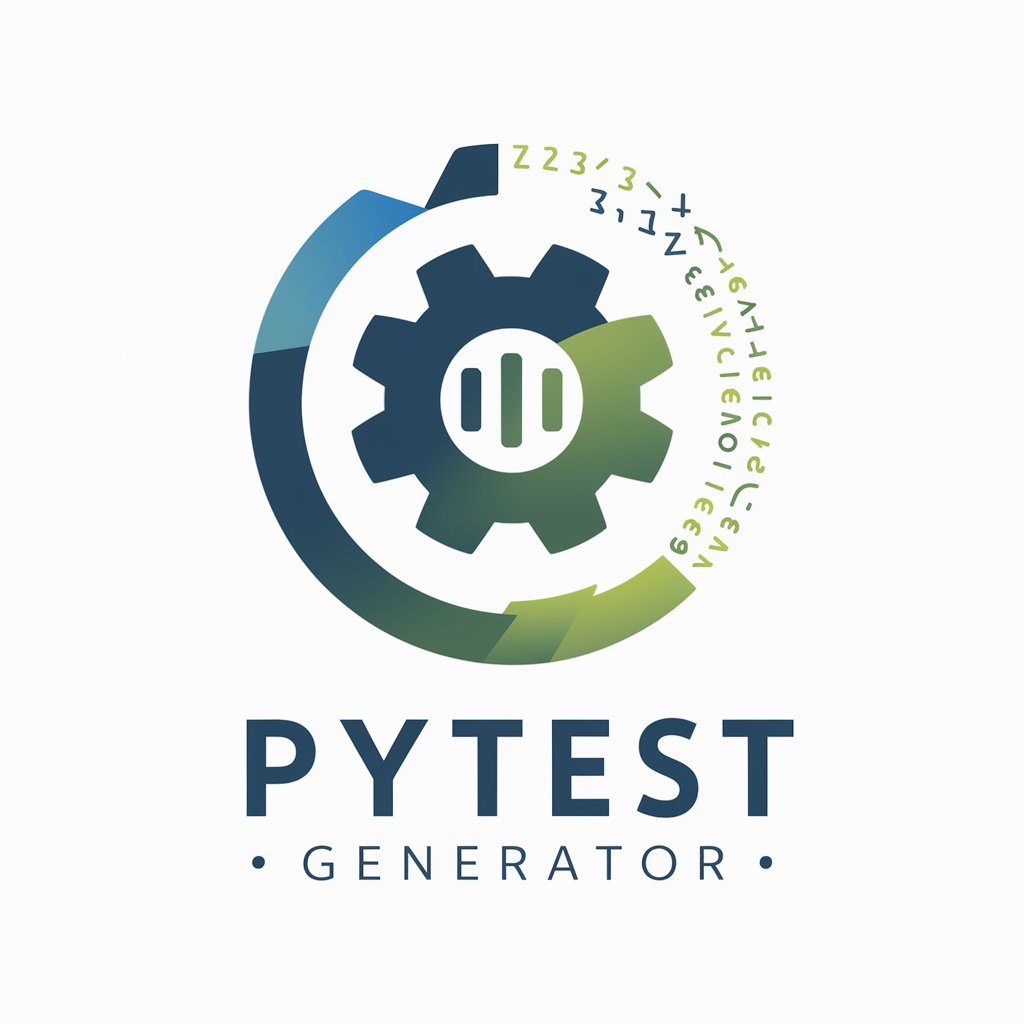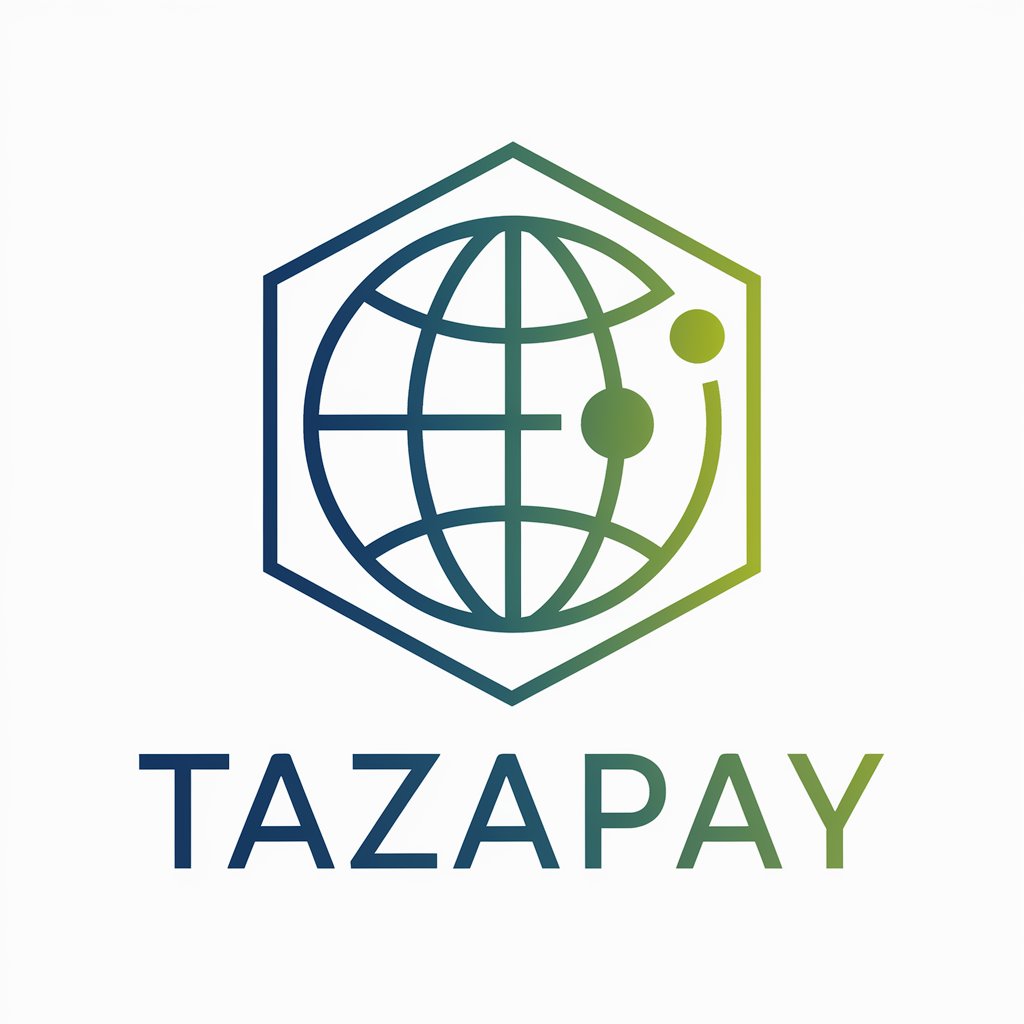PyTest Generator - PyTest code generation tool.

Welcome to PyTest Generator, your guide to robust testing!
Automate PyTest code generation with AI.
Generate a PyTest unit test for a function that...
Create integration tests for a service that...
How do I mock a dependency in PyTest when...
What are the best practices for setting up CICD pipelines to ensure...
Get Embed Code
Understanding PyTest Generator
PyTest Generator is a specialized tool designed to assist developers in creating automated tests for Python applications using the pytest framework. Its primary function is to streamline the test development process by generating test boilerplates based on the application code. This includes the generation of unit tests, which test individual components of the code in isolation, and integration tests, which test the interactions between components and external systems. A key feature of PyTest Generator is its ability to integrate with existing code bases, analyzing functions and methods to suggest meaningful test cases. For example, if a developer has a function that calculates the sum of two numbers, PyTest Generator could automatically generate a test case to ensure that the function correctly handles positive, negative, and zero values. Powered by ChatGPT-4o。

Core Functions of PyTest Generator
Automated Test Creation
Example
Given a Python function that concatenates two strings, PyTest Generator can automatically generate a pytest function that checks the output given various inputs.
Scenario
In a development team working on a text manipulation library, PyTest Generator would be used to automatically generate tests for each function in the library, significantly reducing the time required to write tests manually.
Mock Integration
Example
For a function that interacts with an external API, PyTest Generator can generate a test that uses mock objects to simulate API responses.
Scenario
Consider a development team building a weather application that fetches data from a weather API. PyTest Generator would help by creating tests that mock the API responses, allowing developers to verify their code's response handling without actual API calls, enabling efficient testing and development.
Continuous Integration/Continuous Deployment (CI/CD) Integration
Example
PyTest Generator can integrate with CI/CD pipelines by automatically running tests every time the code is updated and pushed to a repository.
Scenario
For a software development team using a Git-based workflow, integrating PyTest Generator with their CI/CD pipeline ensures that every push to the main branch triggers a series of automated tests, helping to catch issues early and improve code quality.
Target User Groups for PyTest Generator
Software Developers
Software developers working in environments that require rapid development and testing would find PyTest Generator particularly useful. By automating test generation, developers can focus more on writing effective code rather than on the nuances of test creation.
Quality Assurance Teams
QA teams tasked with ensuring code quality and reliability across large codebases would benefit from using PyTest Generator. It aids in maintaining a robust test suite that can adapt as the application grows and changes.

How to Use PyTest Generator:
Visit yeschat.ai for a free trial without login, also no need for ChatGPT Plus.
Navigate to yeschat.ai and access PyTest Generator without the need for login or ChatGPT Plus subscription.
Access PyTest Generator module.
Locate the PyTest Generator module on the platform and click to open it.
Define test parameters.
Specify the test parameters such as test cases, inputs, expected outputs, and any necessary mocks for services.
Generate PyTest code.
Click the 'Generate' button to automatically generate PyTest unit and integration test code based on the defined parameters.
Download and integrate.
Download the generated PyTest code and integrate it into your project, ensuring compatibility and functionality with your existing test suite.
Try other advanced and practical GPTs
GPT-5
Unleashing AI's potential for you

pro
Enhance Your Brand with AI Power

Math Genius
Unlocking Mathematical Insights with AI

email feedback specialist
Enhance Your Emails with AI-Powered Feedback

Web Scrap
Unlock insights with AI-powered web scraping.

365 Expert
Empowering Microsoft 365 users with AI support.

Revise text
Revise text: Enhance your writing with AI.

改行くん
AI-powered text restructuring for precise formatting.

Tazapay Marketing
Empowering Global Commerce with AI

CodeGPT
Your AI coding companion

PineScript v5 TradingView™
Script Your Trading Success

Tarot Advisor
Explore your future with AI-driven tarot readings.

PyTest Generator Q&A:
What is PyTest Generator?
PyTest Generator is a tool that automatically generates PyTest unit and integration test code based on user-defined parameters, helping streamline the test creation process.
How does PyTest Generator work?
PyTest Generator works by allowing users to define test parameters such as test cases, inputs, expected outputs, and service mocks, and then automatically generates PyTest code accordingly.
What are the benefits of using PyTest Generator?
Using PyTest Generator saves time and effort by automating the tedious process of writing PyTest unit and integration tests, ensuring better test coverage and reducing the likelihood of bugs in software applications.
Can PyTest Generator handle complex test scenarios?
Yes, PyTest Generator is designed to handle a wide range of test scenarios, including complex ones involving multiple test cases, inputs, outputs, and service mocks.
Is PyTest Generator suitable for both beginners and experienced developers?
Yes, PyTest Generator is suitable for developers of all levels, from beginners to experienced professionals, providing a user-friendly interface for defining test parameters and generating PyTest code.
